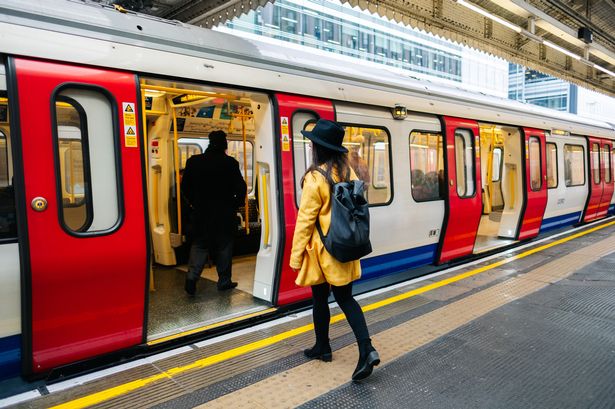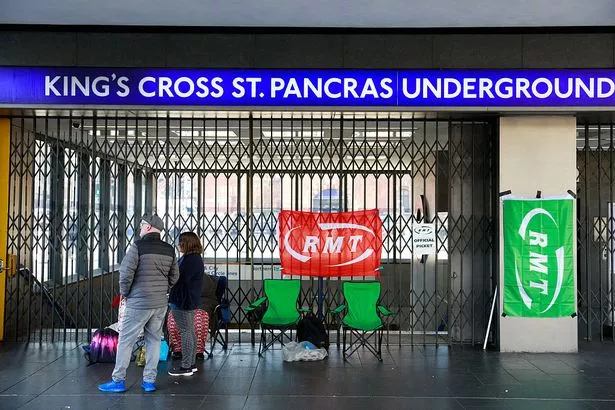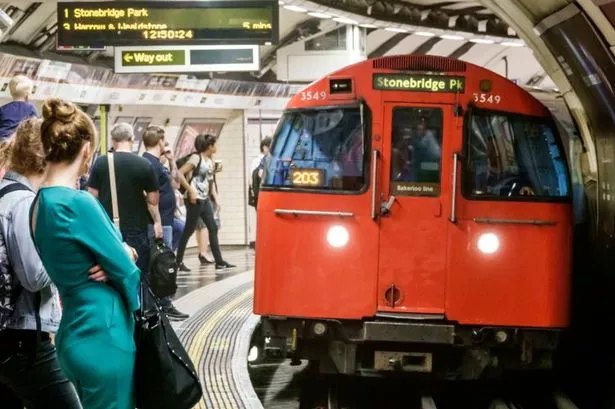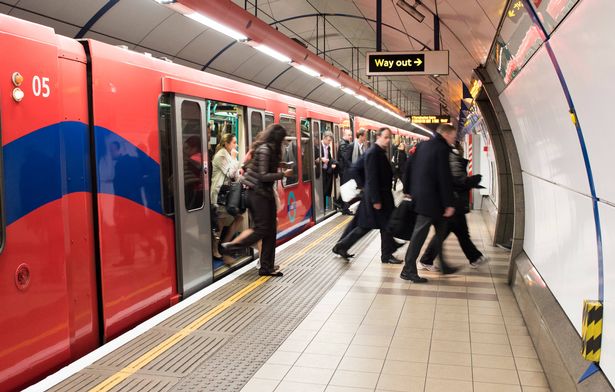The Tube strikes are due to come to an end on Thursday, September 11
The RMT walkout has brought London public transport to a standstill since Sunday, September 7 and is due to end on Thursday, September 11. However, certain routes and lines will still be affected into the early hours of Friday morning as service returns to the TfL Underground network.
On Thursday, September 11, there is limited service on the Tube as well as the DLR. The Central, Northern and District lines were partly running on Wednesday afternoon and Thursday according to the Guardian. More information can be found on the TfL website.
The Elizabeth Line, London Overground and tram network are still operational but extremely busy and unable to stop at certain stations shared with the Tube network.
The DLR has seen disrupted services on September 9 and September 11 due to strikes in a separate dispute. On Friday, September 12, the DLR and Elizabeth line are expected to have normal service but there will still be no service on the Tube until 8am.
While some disruptions are expected as the service returns, the TfL predicts that all lines will return to normal by late morning on Friday, September 12. However, as the Tube strike comes to a close, strikes are planned to begin on bus services operated by First Bus.
If these go ahead, it will affect services in west, northwest and southwest London from 5am on Friday, September 12 until 5am on Monday, September 15. The RMT walkout disrupting the Tube lines this week was due to a dispute over pay and conditions.
Including a reported demand for a 32-hour working week according to the Telegraph. The union claimed management had refused to seriously engage with their demands.
It also raised concerns over pay, fatigue management and extreme shift patterns faced by its members. It said: “Management’s dismissive approach has fuelled widespread anger and distrust among the workforce, who voted in overwhelming numbers to take strike action.”
Throughout the strike, commuters have turned to buses, bikes, walking and even boats on the Thames to get where they need to be. This in turn has triggered some congestion on London’s roads but it’s businesses that are believed to be paying the price for this strike.
Centre for Economics and Business Research predicted the strike would deliver a £230million blow to the London economy in research carried out for The Standard. It estimated around 700,000 working days would be lost as it affected the three million passengers the Tube usually serves on a daily basis.
However, the thinktank expects this number to be millions higher due to indirect impacts from the strike. For example, retailers, bars and restaurants receiving a noticeable fall in customers. No talks have reportedly taken place during the strike to resolve the dispute as of Wednesday.
TfL reported around the strikes: “Since the ballot was undertaken, London Underground has offered a 3.4pc pay increase in the ongoing pay discussions. Members of the RMT at London Underground have not had a say on the final pay offer, with the 3.4pc pay increase a figure in line with offers accepted by RMT in recent pay discussions across the rail industry.”
Claire Mann, TfL’s chief operating officer, added: “We are disappointed that the RMT union has announced strike action. We regularly meet with our trade unions to discuss any concerns that they may have, and we recently met with the RMT to discuss some specific points …
“We welcome further engagement with our unions about fatigue and rostering across London Underground, but a reduction in the contractual 35-hour working week is neither practical nor affordable.”






